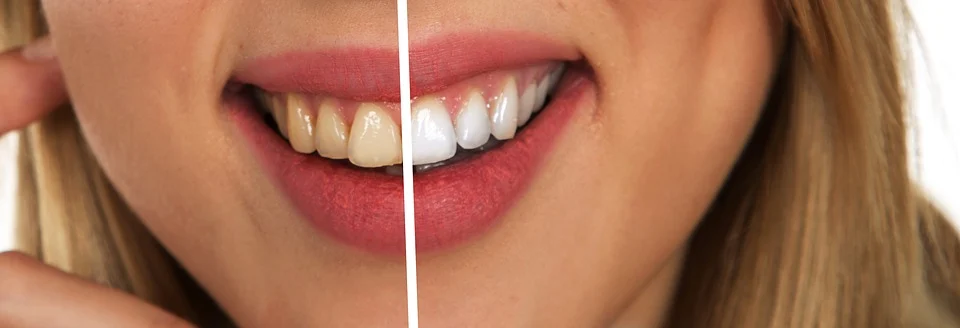Over the years, there have been controversies regarding teeth whitening agents. While some scientists believe that teeth whitening agents could be detrimental to dental health, a faction disagrees.
Teeth whitening agents have indeed helped give us the best smiles. But is there something you should be worried about? Are these whitening agents harmful? Read on to know how teeth whitening affects your teeth.
Do teeth whiteners affect the dentin?
From home teeth whitening kits to professional teeth whiteners, the teeth whitening options have ensured that it is one of the easiest dental procedures today.
Most teeth whiteners contain carbamide peroxide, a compound that eventually breaks down into hydrogen peroxide and urea, which interacts with the tooth surface. A few scientists believe that hydrogen peroxide could affect molecules in the dentin layer, according to research presented in 2019.
However, the ADA agrees that they do not pose immediate risks and are safe if done right or by a licensed dentist.
Do teeth whiteners have side effects?
Teeth whiteners may present side effects depending on the quantity used and the level of exposure. A few of these side effects are:
- Gingivitis: If hydrogen peroxide seeps into the gums, temporary gingivitis is mainly a problem with non-professional whiteners. Some over-the-counter whiteners that come with mouth guards that don’t fit properly could cause hydrogen peroxide to leak into your gums.
- Teeth sensitivity is an unpleasant sensation while eating or drinking, especially cold or hot edibles/drinkables.
These side effects, however, only last for a short period. Most dentists will prescribe potassium nitrate-containing products as remedies. Nonetheless, to reduce these side effects, you should visit your dentist.
Only a dentist could effectively determine the amount of exposure and quantity suited to you.
Who should and shouldn’t whiten teeth?
Not everybody can whiten their teeth. People that shouldn’t go through with whitening procedures include individuals with cavities, braces, and dental fillings. Additionally, it does not have an effect on artificial teeth.
After whitening, what next?
Teeth whitening does not last forever, so you might have to visit your dentist regularly to repeat the process. However, your dental hygiene practices could significantly impact those intervals and, therefore, your level of exposure to the whitening agents. You might have to watch what you eat or drink to prevent this.
Beverages like wine, other tannin containing beverages and sugary edibles/drinkables, in general, could stain your teeth. You might want to rinse your mouth in between meals to prevent this.
Regular dental practices like flossing and brushing regularly should ensure an extension of the duration.
Conclusion
Although teeth whiteners could improve your teeth’s appearance, it doesn’t connote dental health. Before opting for teeth whitening procedures, it could serve you better to visit your dentist to ensure optimal dental health.
Additionally, it might be better to visit your dentist marrickville for teeth whitening procedures to reduce side effects. To ensure safety, you could also:
- Follow the instructions on teeth whitening products to the letter
- Only use products with the ADA seal of approval.

